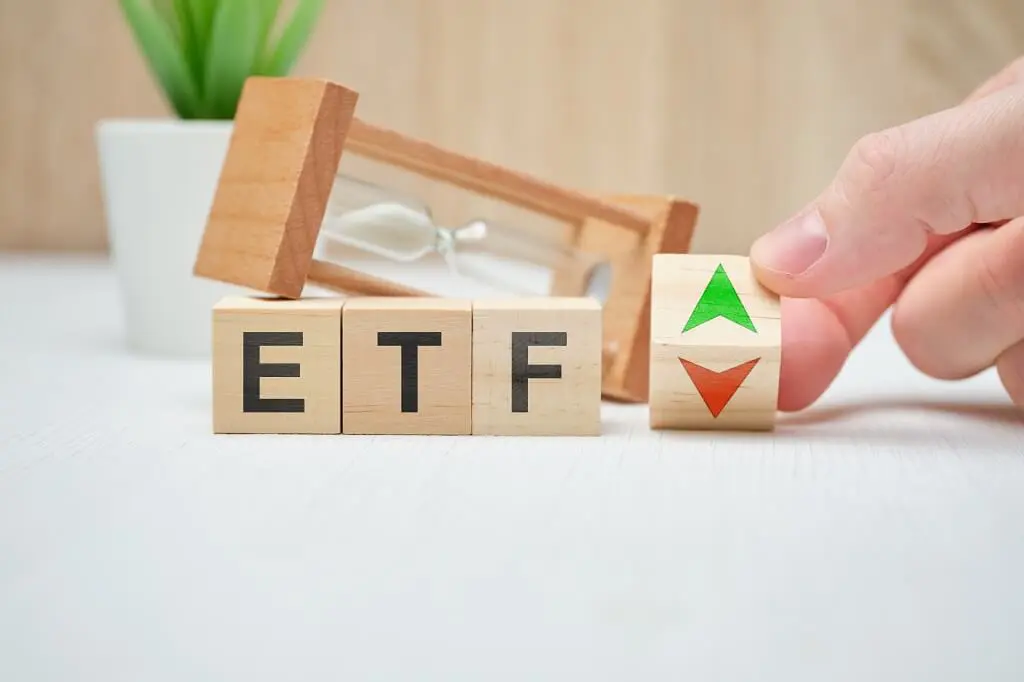Mutual Funds Vs ETFs – Which one is better to Invest

Securing your finances is one of the crucial things to do to enjoy a secured living thereafter. There are various investment options available that guarantee adequate returns to meet your financial objectives. Among them, mutual fund holdings and ETFs are the most popular ones. Both provide excellent ways of diversified investment to the investors, and they have many common aspects, as there are many key differences between the two (ETFs and mutual funds). In this article, we will compare mutual funds and ETFs and bring out the similarities and differences between the two. Before we compare both of these instruments, let us find out what these are and how they work.
What are Mutual Funds?
Mutual funds are open-end professionally managed investments that pool money from many investors and invest them collectively into various financial instruments like stocks, bonds, financial derivatives, debt instruments, etc. The amounts collected from the investors are managed by a dedicated fund manager who does all the fund management on behalf of the investors. The fund manager has the rights to analyze the market and decide which stock or bond to invest in and how much to invest in so that the investors can reap the maximum return. Each fund scheme has a defined Net Asset Value or NAV, which is calculated by dividing the fund’s total investment by the total number of investors. Also, investors are allocated a unique fund unit on the basis of their quantum of investment in the fund.
 Since a fund is a collective instrument, the total risks associated with the fund is divided among the unit holders. There are three structures of fund holdings, open-end, closed-end, and unit investment trusts (UITs). Funds ETFs or the Exchange-traded fund holdings are the combinations of the open-end funds and the unit-investment trusts.
Since a fund is a collective instrument, the total risks associated with the fund is divided among the unit holders. There are three structures of fund holdings, open-end, closed-end, and unit investment trusts (UITs). Funds ETFs or the Exchange-traded fund holdings are the combinations of the open-end funds and the unit-investment trusts.
Open-End Funds:
Mutual fund holdings that buy back or redeem their shares back from the investors at the decided NAV are termed as open-end funds. The NAV is calculated based on the current price of the shares owned by the fund at that day when the redemption will be announced. However, most open-end funds sell shares to the public on every business day priced at NAV in the US. But in other jurisdictions, the open-end fund holdings may be redeemed at longer intervals.
Closed-End Funds
Unlike open-end funds that are redeemed at regular intervals, closed-end funds issue shares to the public only once at the time of IPO (initial public offering). Closed-end funds cannot buy back or redeem their shares, but if the investors want they can sell their shares to other investors in the market, but the sell has to be initiated only in a proper stock exchange (like S&P 500, or Nasdaq), where the stocks of the mutual fund are listed. The price at which the investors sell their holdings to other investors must be different from the NAV of the shares at which they were bought; it may be either at a premium (more than the NAV) or at a discount (less than the NAV).
Unit Investment Trusts
UITs are also issued to the public only once when they are created. These mutual funds have a limited time span and much like open-end mutual fund holdings, UITs can be redeemed anytime with the fund. UIT investors can also sell their shares directly in the open market like Closed-end funds. The only disadvantage of investing in these mutual funds is that unlike other mutual fund holdings with a dedicated fund manager who enjoys the rights to decide which stocks to invest in, UITs do not have a dedicated fund manager.
What is an ETF?
 Exchange-traded funds holdings are yet another defined structure of mutual fund holdings that combine the characteristics of open-end funds and closed-end funds. Exchange-traded fund holdings are traded in the stock exchange (like S&P 500 or Nasdaq) throughout the entire day, and they experience price changes throughout the entire day. They are the marketable securities that track the performance of stocks, bonds, or indexes. When an investor invests in funds ETFs, the money is automatically invested in a series of market securities, which are a part of a predetermined index. The investment is made in the same proportion as that of the index.
Exchange-traded funds holdings are yet another defined structure of mutual fund holdings that combine the characteristics of open-end funds and closed-end funds. Exchange-traded fund holdings are traded in the stock exchange (like S&P 500 or Nasdaq) throughout the entire day, and they experience price changes throughout the entire day. They are the marketable securities that track the performance of stocks, bonds, or indexes. When an investor invests in funds ETFs, the money is automatically invested in a series of market securities, which are a part of a predetermined index. The investment is made in the same proportion as that of the index.
Exchange fund trade holdings follow an arbitrage pricing policy to keep their prices close to the NAV of the underlying asset value. Exchange-trade fund holdings are passively managed funds that allocate equal weights to all the stocks. There is no dedicated fund manager looking after the investors’ assets; however, they track the underlying index’s performances. ETFs can be freely bought and sold in a stock exchange at any time of the day. They are considered as more tax-efficient investments because they are bought and sold frequently which leads to a higher capital gain.
Features of ETFs
1) ActiveTrading: Unlike other mutual fund holdings, Exchange-traded fund holdings are actively traded on a stock exchange. Though other fund holdings may be listed on a stock exchange, they are not actively traded like Exchange trade fund holdings. Therefore, an ETF price can differ from that of the NAV of other underlying assets; it can either be traded at a premium (a value more than the NAV) or at a discount ( a value less than the NAV).
2) Passively Managed Funds: A dedicated fund manager enjoys the rights to participate in a mutual fund and actively manages the investors’ fund, taking all the important investment decisions on the behalf of the investors. Whereas the etfs are passively managed where the funds only track the market index sometimes. However, there are some actively managed ETF also but then the expenses ratios are huge due to which the investors are not willing to invest in those ETFs.
3) High Liquidity: Exchange-traded fund holdings are highly liquid, which means that they can be exchanged for cash anytime whenever the investors are in dire need of cash. However, liquidity factors of various ETF are not the same, and all the Exchange trade fund holdings may not have the same liquidity on the stock exchange. Generally, large exchange trade fund holdings with significant AUM (assets under management) will have more liquidity than others. Therefore, it is better to invest in large exchange trade fund holdings than smaller ones.
4) Lower Expense Ratio: As an ETF is passively managed, it has lower expense requirements as compared to other fund holdings, as such cost efficiency in Exchange-traded fund holdings results in higher net returns over a long time.
Similarities between ETFs and mutual funds
 Both exchange trade fund holdings and mutual fund holdings are less risky than investing in individual stocks and securities. One mutual fund or exchange-traded fund comprises multiple stocks or bonds. Therefore, if one single stock performs poorly, the risk will be divided among the rest of the stocks, thereby reducing any single stock’s overall risk. Both offer a variety of investment options to the investors where investors can either invest broadly or narrowly, depending on their preferences.
Both exchange trade fund holdings and mutual fund holdings are less risky than investing in individual stocks and securities. One mutual fund or exchange-traded fund comprises multiple stocks or bonds. Therefore, if one single stock performs poorly, the risk will be divided among the rest of the stocks, thereby reducing any single stock’s overall risk. Both offer a variety of investment options to the investors where investors can either invest broadly or narrowly, depending on their preferences.
Differences between Mutual Funds and ETFs
Here we present the detailed discussion of mutual funds vs. ETF. Though there are striking similarities between mutual fund holdings and exchange trade fund holdings, there are also a lot of differences between the two (ETFs and mutual funds), especially the way both are managed.
1) Flexibility in operation
Exchange-traded funds (ETFs) can be freely traded in the stock market as per the investor’s convenience. The buying and selling of ETFs can be done in any exchange, just like ordinary equity stocks. Whereas on the contrary, investors can only buy or sell the mutual funds units by placing a request with the fund house at NAV, which dictates the market price of one unit of a mutual fund.
2) Participation of fund managers
A dedicated fund manager enjoys the rights to participate in a mutual fund and actively manages the investors’ fund, making all the important investment decisions on behalf of the investors. Whereas the ETFs are passively managed where the funds only track the market index sometimes. However, there are some actively managed ETFs also but then the expenses ratios are huge due to which the investors are not willing to invest in those ETFs.
3) Performance
As mutual funds are actively managed by fund managers who decide where to invest money and how much to invest, the performance of the mutual funds, as well as the firm’s prospects, highly depend on the parameters that the fund managers follow when they choose any particular investments. The performance of the mutual funds also depends on whether the management team’s decision went right.
Whereas, on the other hand, with ETFs, there is no flexibility in the investments, and therefore the performance of the etfs highly depends on the index that the ETFs track; if they track indices well, the ETF will perform well and vice versa if the indices tank.
4) Commissions
Like any other stocks that are traded in a stock exchange, ETFs trading also needs the investors to pay commissions on the purchase and sale of the ETF units. Whereas, in the case of funds, investors don’t need to pay any commission on the purchase or sell of the fund unit.
5) Fees
As most of the ETFs are not actively managed, and there are no experienced fund managers managing the investors’ funds, the fees associated with ETF investment are relatively low. However, there are actively managed ETFs available, but their expense ratio is very high, so they are not generally considered as lucrative investments. Whereas on the other hand, as fund managers actively manage the fund holdings, the fund management expenses are attached to it.
6) Lock-in period
With ETFs, there is no minimum holding period fixed for the investors, and they have the liberty to sell their holdings any time as per their conveniences. Whereas on the other hand, funds may have a lock-in period, that may vary between 9 days to 3 years as per the norms of any specific fund scheme; during this lock-in period investors cannot sell any of their units.
7) Tax treatments
When investors sell any mutual funds unit, any profits arising therefrom is considered as capital gains distributions. These capital gains may come as a surprise to many investors if their funds units are in a taxable account; they will be taxable under capital gains, and the investors will owe tax to the government for the year in which the gains were distributed.
However, suppose an investor holds his funds units in a tax-advantaged account like a 401(k) plan or IRA(individual retirement account). In that case, he will not have to worry about it because capital gains are deferred until money is withdrawn at the time of retirement.
Therefore, in mutual funds, long-term investors are profitable only if you are a short-term investor; you will have to adjust your taxes according to your investments. Whereas, on the contrary, ETFs are not subjected to any capital gains distribution due to their trading policies and, therefore, not subjected to any tax obligations.
Most funds disclose their unit holdings on a quarterly basis, and therefore the investors can only see their status after every three months. Whereas on the contrary, as ETFs can be traded throughout the day, their statuses get updated every day, and the investors can view their holdings any time online. Therefore, ETF trading are much more transparent, like stock trading.
Which is the best between mutual funds and ETFs?
 In the debate mutual fund vs ETF, both stand at different levels of efficiencies. Both fund holdings and ETFs offer an excellent opportunity for the investors to build a diversified investment portfolio, but which one to decide would depend on an individual investor’s financial requirements. Before investing in any of these investment instruments, an investor must weigh certain underlying factors like the extent of his risk appetite, how much risk he can withstand, his financial goals, ease of investment liquidation, his investment horizon and the tax-saving strategy he implements. Therefore, when we compare these two instruments, we should take all these factors into consideration. The investor will be able to narrow down his options and choose the most profitable investments according to his criteria. ETFs provide the investors high returns and more flexibility in buying or selling their holdings in the short-term, but in the long-term mutual funds may seem to be a more profitable investment as it needs to be held for longer terms and therefore aids in future investments.
In the debate mutual fund vs ETF, both stand at different levels of efficiencies. Both fund holdings and ETFs offer an excellent opportunity for the investors to build a diversified investment portfolio, but which one to decide would depend on an individual investor’s financial requirements. Before investing in any of these investment instruments, an investor must weigh certain underlying factors like the extent of his risk appetite, how much risk he can withstand, his financial goals, ease of investment liquidation, his investment horizon and the tax-saving strategy he implements. Therefore, when we compare these two instruments, we should take all these factors into consideration. The investor will be able to narrow down his options and choose the most profitable investments according to his criteria. ETFs provide the investors high returns and more flexibility in buying or selling their holdings in the short-term, but in the long-term mutual funds may seem to be a more profitable investment as it needs to be held for longer terms and therefore aids in future investments.
Also, funds would prove to be the best investment options for first-time investors who are not sure of which stocks to pick or how much to invest in various stocks. With funds, they only need to buy units from any mutual fund scheme, and the fund manager of that scheme will take care of the rest of the things. He will analyze the stock market minutely and invest the funds into the most profitable instrument, such as stocks, bonds, derivatives, or any other instrument. In mutual funds, the associated risk also gets divided amongst the total number of investors, but in ETFs, it is not like that.
Circumstances where either of the mutual funds or ETFs prove to be the best
Let us compare the various situations under which each of the instruments performs better than the other.
1) For investors who prefer lower investment minimums
ETFs would be an ideal investment for investors who prefer a lower limit for investments. An ETF can be bought at the market price of one share that could be as low as $50 or as much as $100 depending on the nature of the ETF that the investor is investing into. But in case of funds, the minimum initial investment does not depend on the fund’s share market price; instead they are priced at a flat dollar amount.
Therefore, where you want to invest is entirely your decision but that should be done only after careful consideration of the underlying factors.
2) If investors want to repeat transactions automatically
In such a case, investing in funds would be a wise decision. Investors can set automatic investment options either to withdraw money from the fund or to invest into the funds based on their preferences. ETFs do not provide this option to the investors to invest or withdraw money automatically.
3) If the investors want to exercise more control over the market price
ETFs provide real-time pricing to the investors and also let them select the most sophisticated order types so that they can have more control over the market price. This is possible because there is no fund manager to make decisions on what order types to select so the investors select their preferred order types themselves. Funds are actively managed by fund managers and therefore, the investors do not enjoy this price advantage on their orders. Regardless of when they place the order, they will get the same price as everyone else is getting, which is calculated after the trading is over.
4) If investors are looking for index funds
In this case, both the ETFs and the funds may sound good. Most ETFs are index funds at the end of the day, and mutual funds also function as index funds so investors can reap the benefits of index funds by investing in any of these two, ETFs or mutual funds.
FAQs
1) Which is a better mutual fund or ETF?
Both mutual funds and ETFs help the investors to build a diversified portfolio of investments, and both work well under specific circumstances. The investor should decide where to invest after considering certain factors like financial goals, risk appetite, urgency of funds, etc.
2) What is the difference between mutual funds and ETFs?
The main difference between mutual funds and ETFs lies in the way both these investment instruments operate. An etf can be bought and sold many times throughout the day in a stock exchange just like stocks, but mutual funds can be traded only once in a day. ETFs are passively managed and the funds only track an index but mutual funds are actively managed by an experienced fund manager. Due to this reason, mutual funds have higher fees and higher expenses ratios than ETFs. The fund manager decides what stocks to invest in and how much to invest so that the investors can get the maximum return on their investments.
3) Why choose an ETF over a mutual fund?
ETFs can be bought or sold anytime during the day, just like ordinary stocks. They are also highly liquid, which means that they can be exchanged for cash whenever the investors need cash. ETFs have less expense ratio and less fees as they are passively managed without any fund manager to look after the investors’ funds and to take investment decisions on their behalf. Apart from these, ETFs also offer tax benefits to investors. Therefore, ETFs are sometimes preferred to mutual funds.
4) Are ETFs riskier than mutual funds?
No, ETFs are considered low-risk investments than mutual funds because they are low-cost investments and comprise multiple stocks or other securities, thereby increasing diversification. ETFs are more transparent and more tax-efficient if we compare them to mutual funds.



